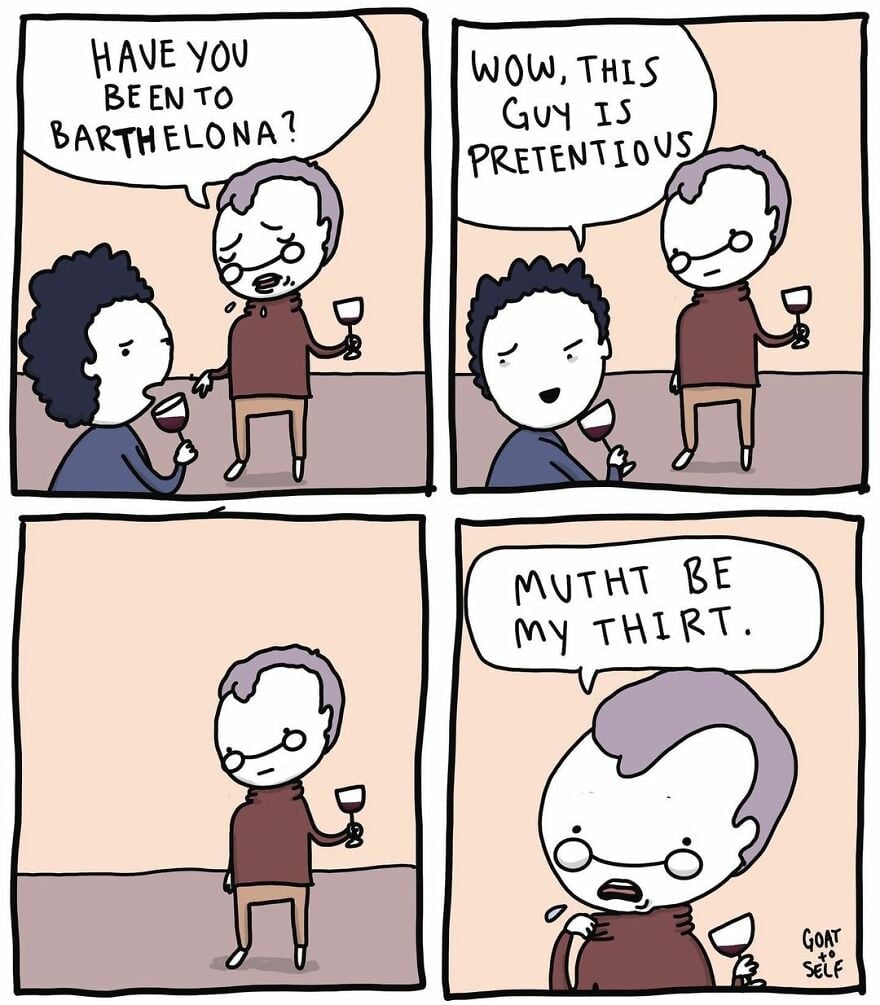Barcelona
-
And then there's the layer on the other side, because the majority of Spanish speakers worldwide pronounce it with an "S" sound.
So, the majority of Spanish speakers in the Americas (which by far outnumber the number of Spanish speakers in Spain) use an "S" sound. The dominant form of Spanish in Spain uses the "th", but the local dialect goes back to an "S" sound.
So, what rule are you going to go by? How the locals say it? The most locally of locals will use an "S" sound. How the majority of Spanish speakers say it? That's again an "S" sound. How the majority of the people in the country who legal sovereignty over that region say it? Then I guess you'd go with the "TH" sound.
The most logical rule, to me, is to pronounce it however the person you're speaking to will most easily understand it. In English to another English speaker, that almost certainly isn't going to be the "th" pronunciation.
-
[email protected]replied to [email protected] last edited by
Look ma, a cunt
-
[email protected]replied to [email protected] last edited by
"Foh" and "foe" both read as the same pronunciation to me. What's the difference?
-
Bey-a lean
-
[email protected]replied to [email protected] last edited by
My experience has been the exact opposite. When I mispronounce words I've been giggled at and/or corrected. When I pronounce it right, people either don't notice or act pleasantly surprised, I've even gotten some head nods that I assumed was acknowledgement of my trying
-
[email protected]replied to [email protected] last edited by
Thank you for detailed responce. For some people it might be just a habit, I'm sure most people aren't against using equivalent names if they exist. Just never occured to me that it would be pretentious, for example until you mentioned that Praha is Prague in English it didn't click with me.
-
English spelling can be difficult as well:
http://ncf.idallen.com/english.html -
[email protected]replied to [email protected] last edited by
There is a lot of people that speak english as a second or third language often they just don't know correct english toponims or idioms, sometimes it's just happens. English for a lot of people isn't objective by itself just a means to an end.
-
[email protected]replied to [email protected] last edited by
And like... I'm just guessing... 800 square feet? That's a district? Nazeem is crazy
-
[email protected]replied to [email protected] last edited by
The ancient Spanish basically all had a lisp. Nobody thought about it at the time and it eventually became the status quo and then correct pronunciation. I base this on absolutely nothing and will die on this hill.
-
[email protected]replied to [email protected] last edited by
Language is indeed for communication, which is why both ways of saying it work...
-
[email protected]replied to [email protected] last edited by
Americans, white Americans especially, have essentially no cultural heritage to draw on
I thought they drew from the varied backgrounds of the people that came over there? That's a shitload of heritage
-
CarrotsHaveEarsreplied to [email protected] last edited by
I can't type out the pronunciation but have you guys heard American people read Japanese names? My god, it is so weird. Say that to Japanese people and I bet half of the time they don't recognise what it is. The way a foreign language is being butchered is beyond imagination.
-
[email protected]replied to [email protected] last edited by
I've been mocked and had some people outright pretend they don't understand what I'm saying when I pronounce guanábana correctly.
-
[email protected]replied to [email protected] last edited by
The sense of scale has always been off with these games. Huge battles have 20 people fighting, cities have less people than a small apartment building.
-
[email protected]replied to [email protected] last edited by
Except one way is better, and that's the way that the person you're speaking to understands best.
-
That would be the (standard) Spanish, right? Catalan, the local language, has it with /s/
But it's very language-dependent. English has established names for many places, so you should probably use those. But some languages just don't, and if you borrow everything, you might as well borrow properly.
-
[email protected]replied to [email protected] last edited by
Sure, but as a general rule, if you're trying to decide how to say the name of a place, you should say it as it is said in your language/dialect if you're speaking your language/dialect, and especially if you're speaking your language/dialect with another person who speaks the same language/dialect.
-
[email protected]replied to [email protected] last edited by
When I mispronounce words I’ve been giggled at and/or corrected
By whom?
When I pronounce it right
What do you mean by "right"? "Barcelona" with an "s" sound is right.
-
[email protected]replied to [email protected] last edited by
If I say Barcelona with a lisp, or without, 99.9999% of people that know what Barcelona is will understand me, you're being unnecessarily pedantic. Anyone who seeks to control language should talk to a linguist. Language isn't prescriptivist as much as non linguists like to think so. It is fluid and ever changing. People will choose how they want to speak and it will either work or it won't. If people understand what someone is saying, nothing else matters as much as many like to think.

